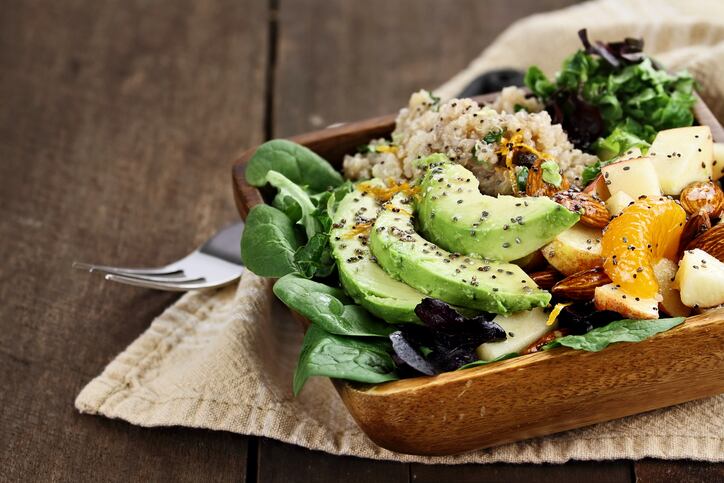The ‘Shop Well-Eat Well’ campaign, unveiled by plant-based food and drink producer Alpro and the British Dietetic Association at a briefing in London yesterday (22 March), identified a host of barriers encountered by people in deprived areas that prevent them from accessing affordable, sustainable and healthy eating.
The initiative, which starts in June, will create a programme of community events in the London Borough of Southwark designed to help those on low incomes overcome some of these barriers.
“With childhood obesity on the rise, especially in deprived areas like Southwark, healthy eating has to be made easier for consumers, with the onus taken off the individual, in order to focus on big changes in key environmental factors,” said Alpro.
It said a multi-agency approach was urgently needed to tackle the issue, bringing together government, local authorities, food providers as well as local communities.
The barriers to healthy eating:
- Habitual behaviours - Low bandwidth also leads to extremely habitual food purchasing behaviours and a consequent lack of variety in diets
- Financial barriers - For low income families, a big barrier to buying new foods or going to a new food shop is not knowing how much the food will cost, or assuming that it will all be expensive. Parents want to know exactly how much their shopping basket is before they reach the checkout.
- Social barriers - Food habits get passed down the generations as young people grow up and become parents themselves. What children see their parents and families doing is what they grow up thinking of as ‘normal’.
- Preparation space and limited bandwidth - The cognitive burden of living under financial strain and other modern day life stresses reduce parents‘ mental bandwidth - brainpower that would otherwise go to planning ahead and problem-solving. Families in this situation look for quick and easy ways to eat, and takeaway and convenience foods provide an in-the-moment solution to feeding children quickly, affordably and safely
- Advertising and shop layouts – Cues such as special offers, advertising for takeaways, attractive packaging and child-height shelving nudge families towards less healthy foods in shops
Good eating begins at home
Speaking at the campaign launch, Duncan Brown from Shift, an award-wining charity that designs products for social change, said environmental factors meant lower income groups spend more on takeaway food compared to more affluent groups. One example was a poor domestic environment.
“The quality of kitchens in social housing is often very poor, meaning people are unwilling to spend time in them. Takeaway food has become just another option for having dinner. It’s no longer a treat and something people have all the time. It’s perceived as a cheaper option and it definitely makes children happy.”
Social factors play a role too. “Takeaways for young people play a really important role for them socially. One teenager said to us they don’t go to MacDonald’s because they are hungry but because it’s where their friends hang out.”
Sue Baic, a Bristol-based registered dietitian who advises low income groups about healthy and sustainable eating, suggested kitchen equipment should be subsidised for low income groups.
Citing data from the Matthew Tree Project, which provides free food aid to those in most need, she said: “One in 10 had no cutlery, no plates and no tin opener. One on four had no baking tray or oven proof dish, no chopping board and no peeler. Sometimes it’s because they’re from spit households and they were left with no cooking equipment. This leads to fewer fruit and vegetables being eaten and a reliance on convenience foods and takeaways.”
This reliance has created a difference the health conditions between the most and least deprived groups in the UK, she said.
“Fat, salt and sugar intake is higher than recommended across all income groups, but we’re seeing intake of fibre, vitamins and minerals, fruit and veg are significantly less in low income groups in the UK.”
What about price?
Nutritious meals need not be expensive and time-consuming, according to Sainsbury’s, which is supporting the ‘Shop Well-Eat Well’ initiative. It claims its new Spring Frittata with Mint Oil recipe, for example, costs just £1.79 per portion.
So as long as the other factors such as education and access are tackled, price should not be a barrier for healthy eating, the supermarket suggested.
She added that food deserts – areas where there are no businesses which provide fresh food – meant people in deprived areas spend more on food.
“Food is the third biggest expenditure among households,” she said. “In the past 10 years food prices have also risen above wages. That has a bigger impact on lower affluent households which spend a higher proportion of their income on food.”
She also cited data revealing that the time people have to cook meals halved form 1908-2015.
These conditions hit children the most, according to Dr Paul Chadwick from the UCL Centre for Behaviour Change: “Children are disproportionately influenced by the environment which we create for ourselves."
“28% of children in the UK are overweight or obese and it’s the poorest children in our society that bear the brunt of this. Obesity rates amongst the poorest children is twice that of more affluent families," Dr Charwick said.
Habits are hard to change
According to Dr Chadwick, to change behaviour “people need the capability to do it, the motivation to do it and the opportunity to do it. And deficits in any one of those will lead to the behaviour not occurring.”
Dr Chadwick called for more legislation to eliminate environmental factors preventing access to healthy eating. “What we want is for everybody to have access to the kind of food environment that higher income families have,” he said.
“People need to be exposed to models for eating healthily on a routine basis. To do this you might need to take away models for eating unhealthily. So your increasing people’s exposure to the opportunity of eating heavily be removing opportunities to eat unhealthy. To do that you’re going to need some serious political collateral.”





